Are you tired of searching for a good anime sports romance show, only to be disappointed by weak plots and no chemistry? Anime series like “Yuri on Ice,” with its fresh take on LGBTQ+ love in figure skating, prove that romance and sports are a great match.
This guide will introduce you to ten awesome anime shows filled with action-packed games, heartfelt relationships, and memorable characters you’ll cheer for. Get ready to find your next favorite anime!
Key Takeaways
Anime sports romance combines competitive action with emotional love stories, as seen in popular titles like “Yuri on Ice” (October 6, 2016) and “Suzuka” (July 7, 2005).
Classic anime such as “Touch” (1985), about twin baseball players competing for Minami’s heart, and “Yawara!” (1989), featuring teen judo athlete Yawara Inokuma balancing Olympics dreams with dating struggles, blend romances naturally into their sports themes.
Unique storylines stand out through creative elements like a ghost bonding with figure skater Tazusa Sakurano in Studio Karaku’s “Ginban Kaleidoscope” (October 8, 2005) or queer relationships shown realistically between Yuri Katsuki and Viktor Nikiforov in MAPPA’s acclaimed “Yuri on Ice.”
Realistic portrayals of training techniques combined effectively with character growth appear vividly through tennis-focused anime “Baby Steps” (April 6, 2014) and the card-game centered romantic drama series “Chihayafuru” from Madhouse studio released October 5, 2011.
Future trends foresee growing demand by viewers for more diverse romantic plots combined smoothly within sports contexts; upcoming anime such as Telecom Animation Film/TMS Entertainment’s basketball-badminton teen romance series “Blue Box” scheduled for release October 3, 2024 exemplify this trend.
Table of Contents
Top Anime Sports Romance Series to Watch
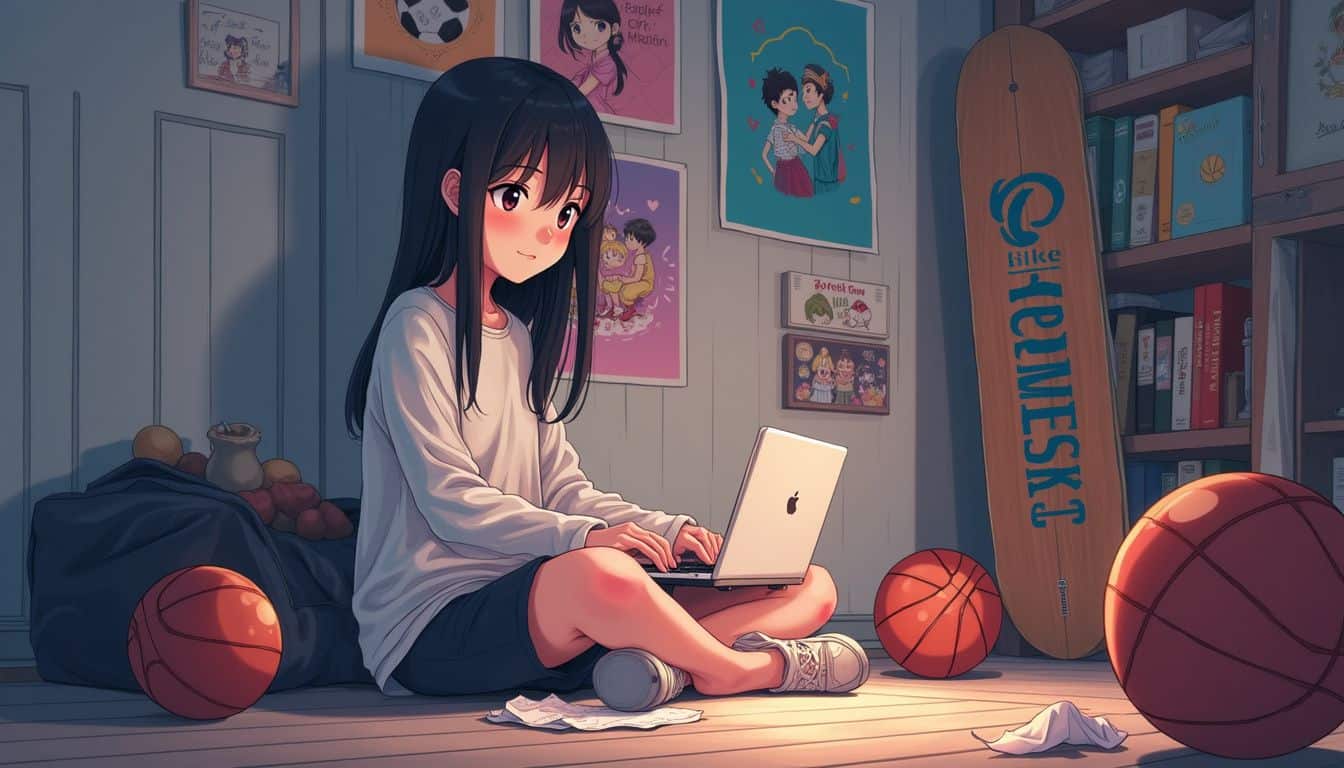
Anime mixing sports action with sweet romance offers something special. Ready to see characters chase love and victory at the same time?
What is the story of Suzuka about?

Suzuka follows the life of Yamato Akitsuki, who moves to Tokyo and soon meets Suzuka Asahina, a talented track athlete. Released on July 7, 2005 by Studio Comet and created by Kouji Seo, it spans 26 episodes that focus closely on sports anime themes such as emotional growth through athletics.
Yamato grows feelings for Suzuka and joins the school’s track team to impress her; this brings hurdles in love and sport for them both. Their romance reminds me of one time when I nervously placed some high stakes bets on various sports betting websites, with excitement riding as high as any track meet.
While Suzuka centers heavily around romantic drama between teens, it equally underscores dedication required in competitive running pursuits.
Sports reveal your character—and so does chasing someone you admire.
Now let’s check out how Baby Steps mixes exciting tennis action with sweet emotions!
How does Baby Steps combine tennis and romance?
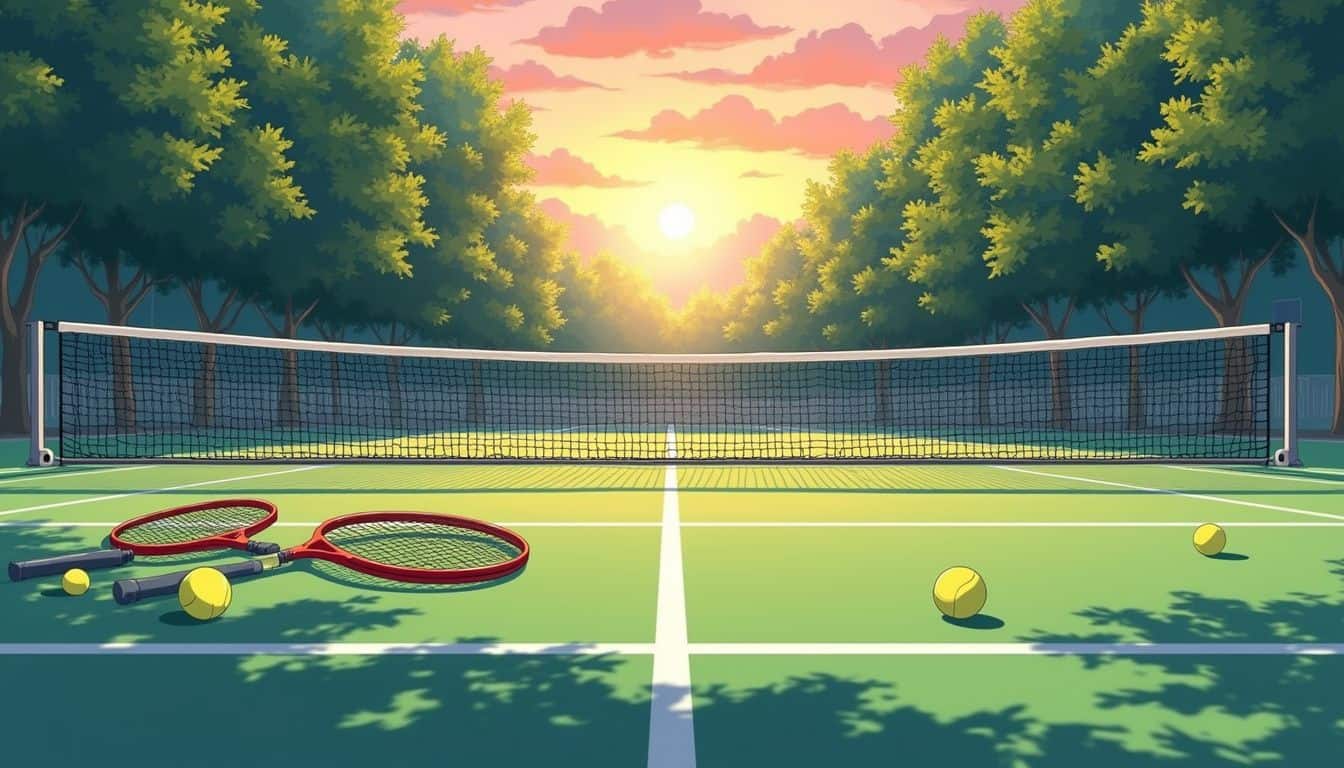
Baby Steps hit anime screens on April 6, 2014 and quickly won over sports manga fans. Eiichirou Maruo starts as a studious rookie at the tennis club; through steady practice, he grows to love the game and finds romance along the way.
His budding feelings for another tennis club member deepen naturally, matching his growing passion for the sport itself. The series strikes an easy balance between exciting matches on court and relatable relationship moments off it.
Baby Steps offers realistic portrayals of both tennis skills and romantic dynamics that geeks can connect with from personal experience—a fresh mix in anime sports romance.
What makes Blue Box’s high school romance unique?
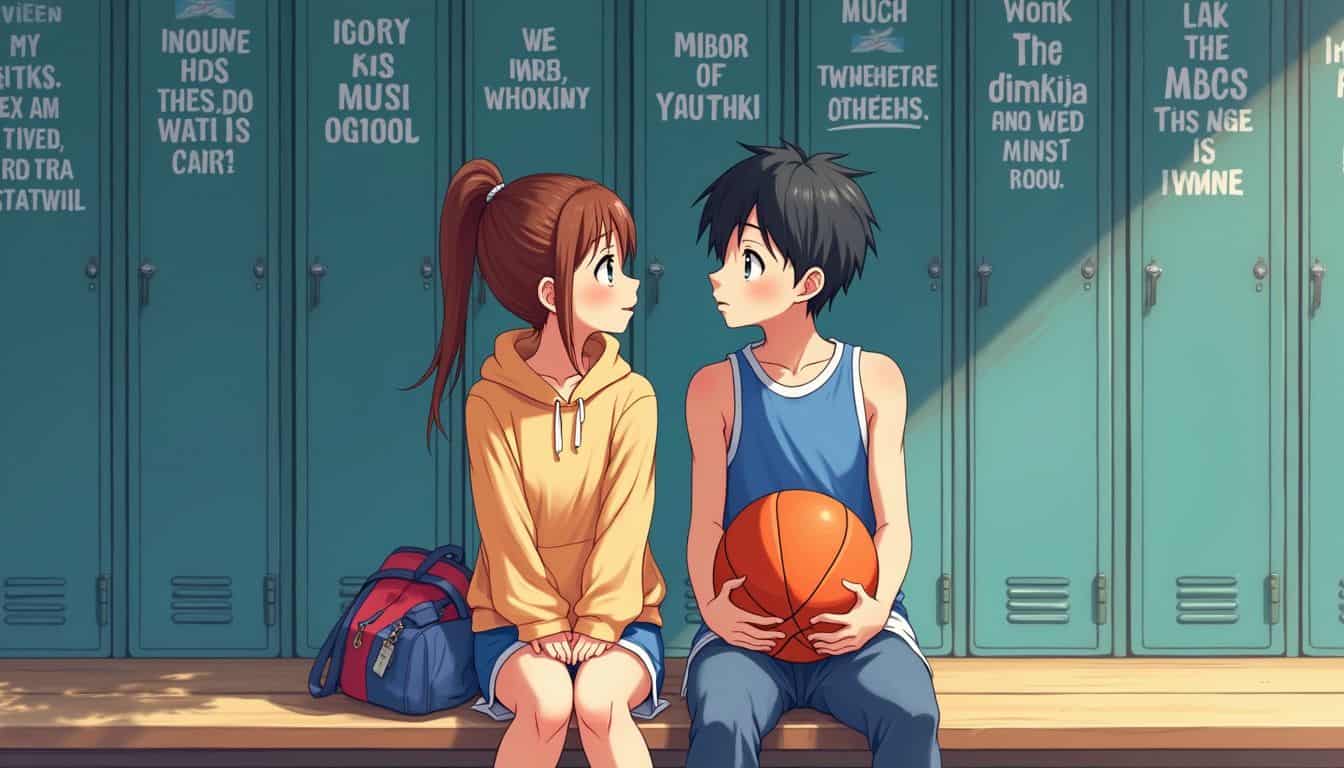
Blue Box uniquely blends sports, romance, and high school life into one seamless story. Created by Kouji Miura and made by Telecom Animation Film with TMS Entertainment, the anime launches on October 3, 2024.
Across its 25 episodes, Blue Box explores how teens balance their dreams in sports like basketball and badminton with real love drama. Unlike Cross Game’s baseball or Yuri!!! On Ice’s ice-skating focus, this anime keeps both athletes’ goals and teenage romance at center stage through each episode.
The show stands out because it shows realistic teen struggles most geeks can relate to directly from personal experience; wanting to do well in a sport while also dealing with crushes is common but tricky.
Rather than taking the route of Eyeshield 21’s Sena Kobayakawa or SK8 the Infinity’s daring thrills, Blue Box portrays quieter yet powerful emotions between characters who support each other’s athletic growth.
Fans who loved Chihayafuru for mixing karuta matches with strong emotional bonds will enjoy watching these high-schoolers tackle daily challenges side-by-side on courts and off them too.
How are rivalries and romance portrayed in Air Gear?

In Air Gear, released on April 4, 2006 and created by Hajime Kamegaki, rivalries push characters to higher levels. Using motorized inline skates called “Air Trecks,” Itsuki Minami faces intense rivals who challenge him in extreme sports battles.
Romance builds naturally as teams form tight connections through competition and friendship. Fans can notice the bond growing between Itsuki and supporting characters amid thrilling contests filled with speed and daring stunts.
The sky’s our battlefield; let’s soar! —Itsuki Minami
What is the connection between the ice skater and ghost in Ginban Kaleidoscope?
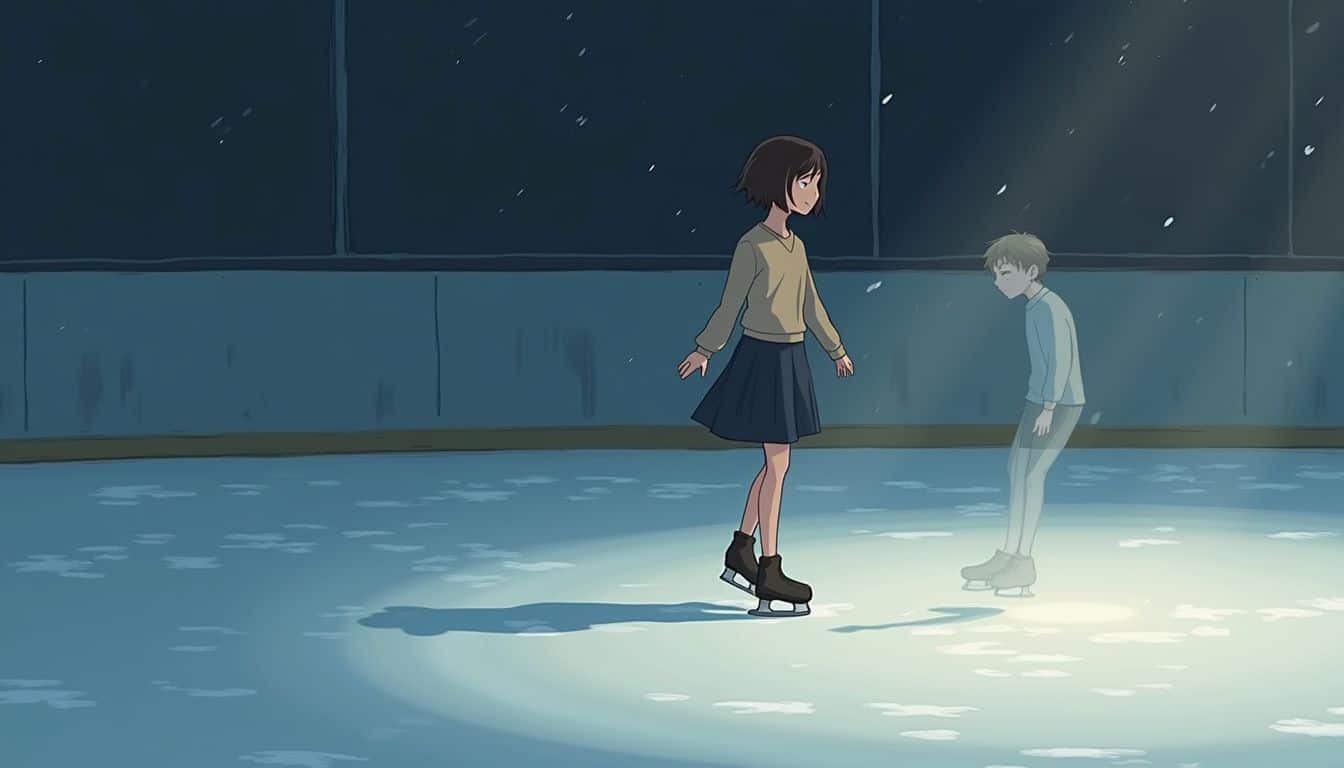
Air Gear blends rollerblade rivalry with teen romance, but Ginban Kaleidoscope mixes figure skating and ghosts. Tazusa Sakurano is a gifted ice skater who dreams of reaching the Olympics.
After an accident during her competition on October 8, 2005, Canadian stunt pilot Pete Pumps dies and his ghost somehow lands in Tazusa’s body for exactly 100 days. She can hear him speak clearly in her head; he sees everything she does through her eyes.
This odd link creates funny scenes as Tazusa tries to skate perfectly with Pete watching—and commenting—from inside her mind! Their bond grows closer over these strange three months.
While ice skating may seem pretty graceful compared to other nerdy sports like Karuta or IGPX: Immortal Grand Prix races, adding a ghostly sidekick makes Ginban Kaleidoscope stand out even more among romantic anime series from Studio Karaku created by Rei Kaibara.
How does Yawara! balance judo and romantic elements?
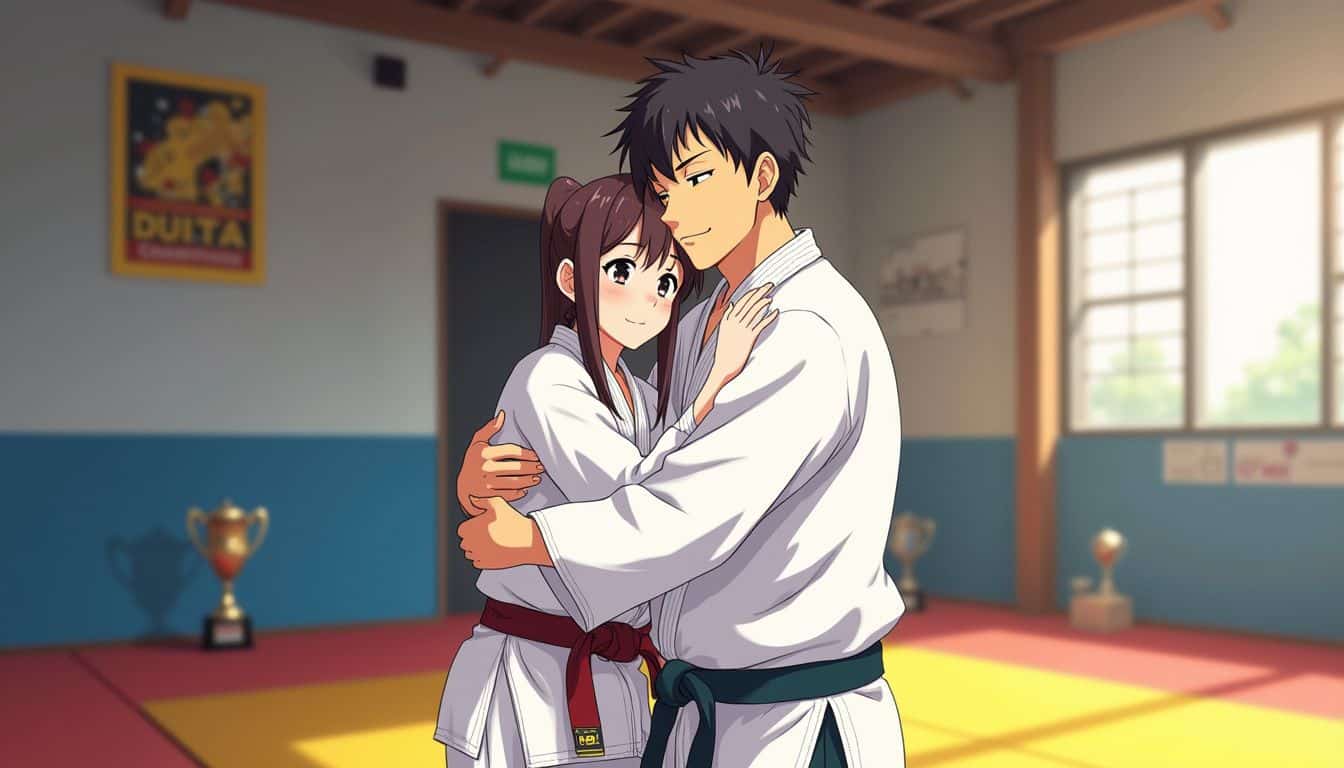
Unlike the odd romance between a figure-skating star and a ghost in Ginban Kaleidoscope, Yawara! features everyday teenage emotions. This classic 1989 anime from Madhouse adapts Naoki Urasawa’s manga to tell the story of Yawara Inokuma.
She isn’t just skilled at judo; she’s also dealing with crushes and teen life. Across its hefty run of 124 episodes, two men compete for her heart: her patient coach and a lively sports reporter who closely follows her career.
While focused on Olympic-level matches, intense training scenes, friendly rivalries like those seen in Blue Lock or Birdie Wing, it still allows room to explore sweet shojo-style moments away from the rink or mats.
Fans cheer as much for Yawara’s romantic wins as they do when she pulls off an awesome throw.
What is the love triangle in Touch involving twins and baseball?
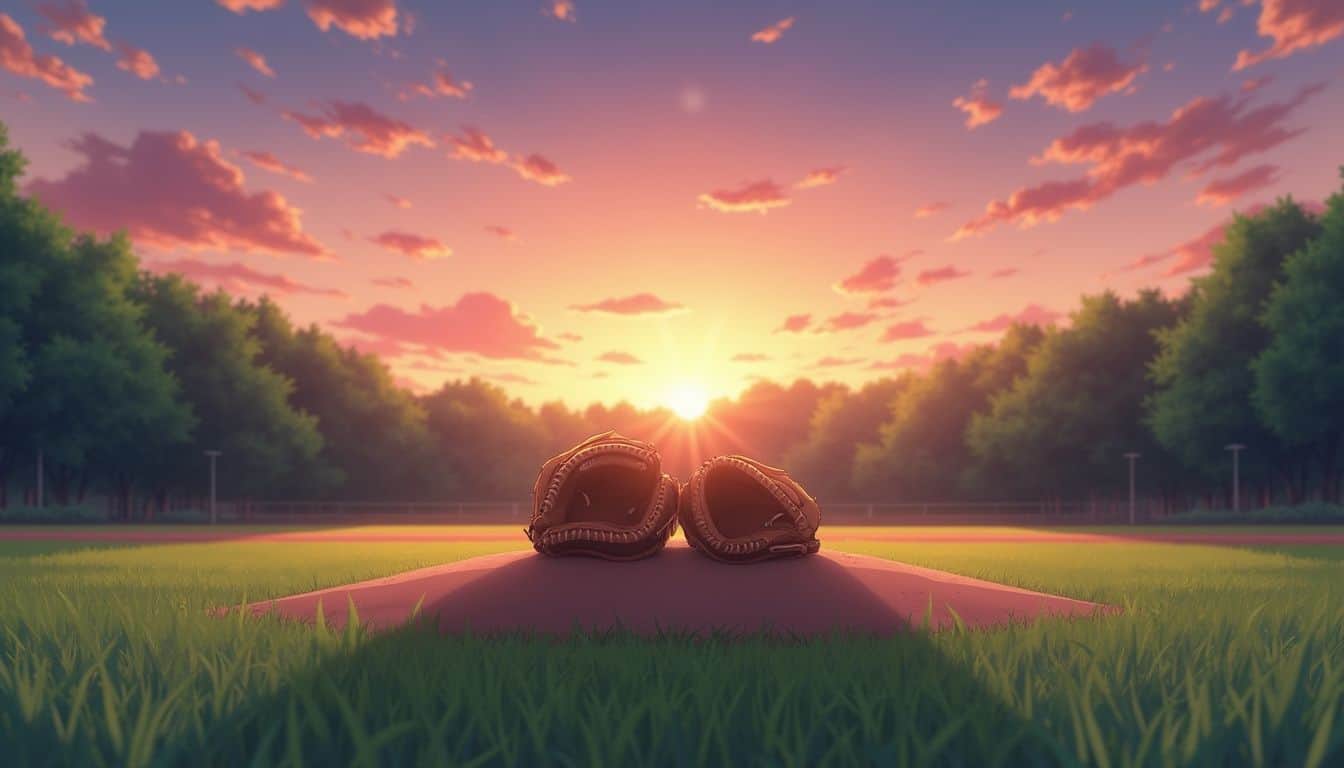
Yawara! shows fun sports romance through judo, but Touch offers a different mix of baseball drama and family love. In this classic 1985 anime from Group TAC, twin brothers Kazuya Uesugi and Tatsuya both fall for their childhood friend Minami Asakura.
While chasing baseball dreams in high school, the twins compete on the field and off to win Minami’s heart in a slow-burn romance across its 101 episodes. Mitsuru Adachi created “Touch” to show how love can be as challenging as any big game or rival like Ozora Tsubasa might face in soccer.
How is queer love depicted in Yuri on Ice?
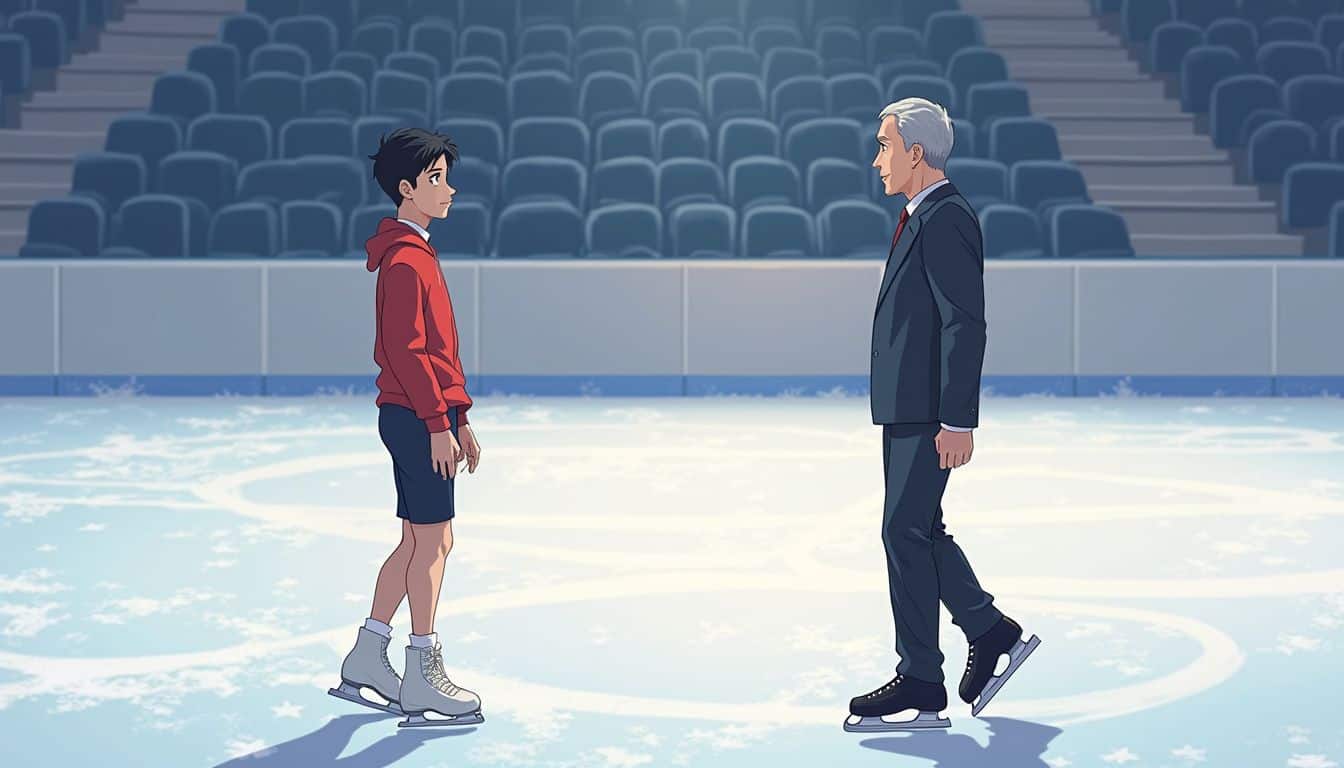
Yuri on Ice hit the screens on October 6, 2016 from Studio MAPPA. The show follows Yuri Katsuki, a talented Japanese skater who falls in love with his Russian coach Viktor Nikiforov.
Their queer romance is honest and full of heart; scenes like their emotional hug or Viktor kissing Yuri after skating on global television are clear symbols of acceptance. This genuine portrayal resonated deeply within geek culture by normalizing intimacy between two men through strong character bonds and personal struggles—much like how Hiruma leads with grit in “Eyeshield 21” or Tsubasa Ozora inspires teammates in soccer matches.
Love and sport intertwine beautifully to spotlight emotional depth beyond typical anime clichés, opening doors for growth within these characters’ lives. Whether you’re into monster battles or Dr.
Stone’s adventures in science, seeing sports combined so naturally with romantic emotion can hook any geek viewer easily into exploring other similar series involving heartfelt stories such as Cross Game’s baseball drama next!
What emotional growth and baseball themes are in Cross Game?
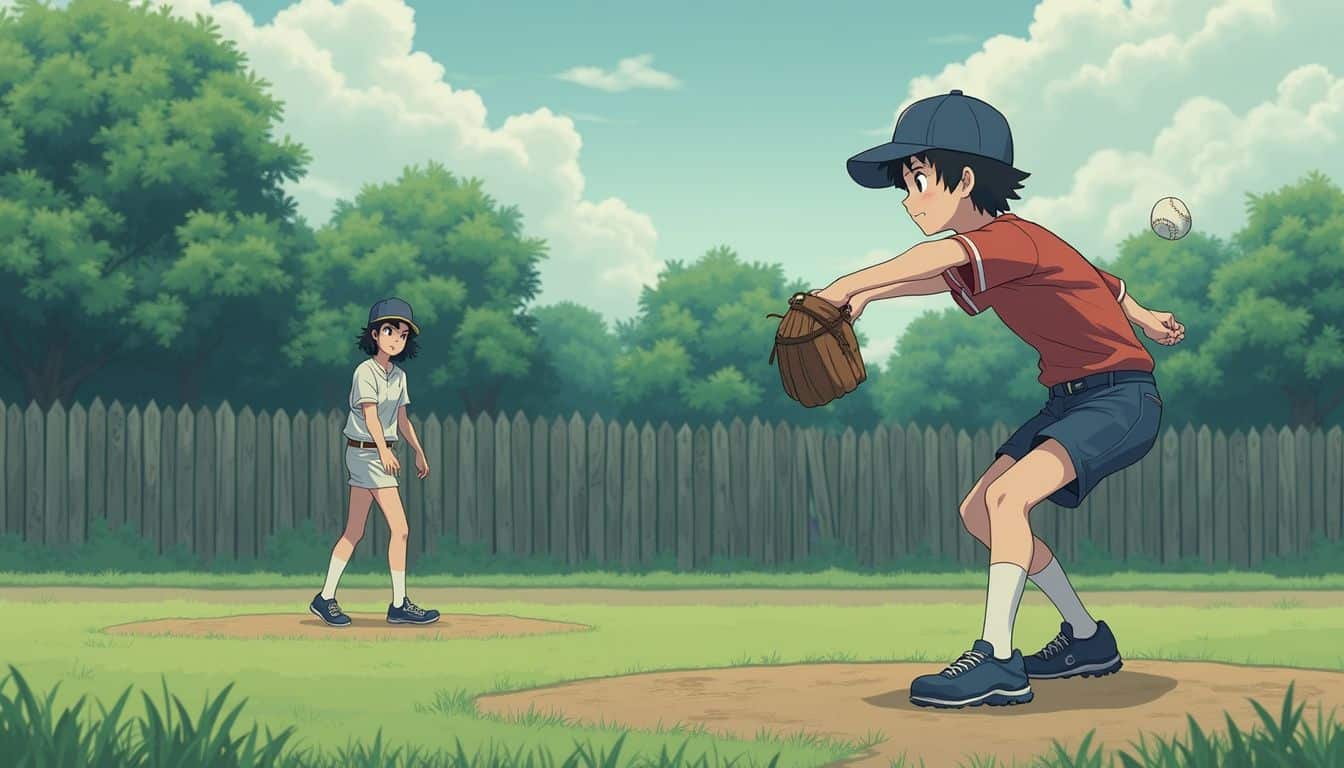
Cross Game, created by Mitsuru Adachi and animated by SynergySP studio, came out on April 5, 2009. Through its 50 episodes, it shows baseball as more than just a game: it’s about loss, healing, and moving forward in life.
High schoolers Ko Kitamura and Aoba Tsukishima come closer through baseball after losing someone they both loved; the sport helps them process grief and learn to trust again.
Ko’s pitching skills develop alongside his courage to admit his true feelings for Aoba; at the same time, her tough outer personality softens bit by bit through teamwork on the field.
As their team aims to reach Japan’s famous Koshien championship tournament, these friends face setbacks that test not just athletic skill but also emotional strength and resilience.
Cross Game blends intense sports action with meaningful relationships that geeks can connect deeply with—especially anyone who has felt friendship or heartbreak sharpened through competition.
How do Karuta and romance intertwine in Chihayafuru?
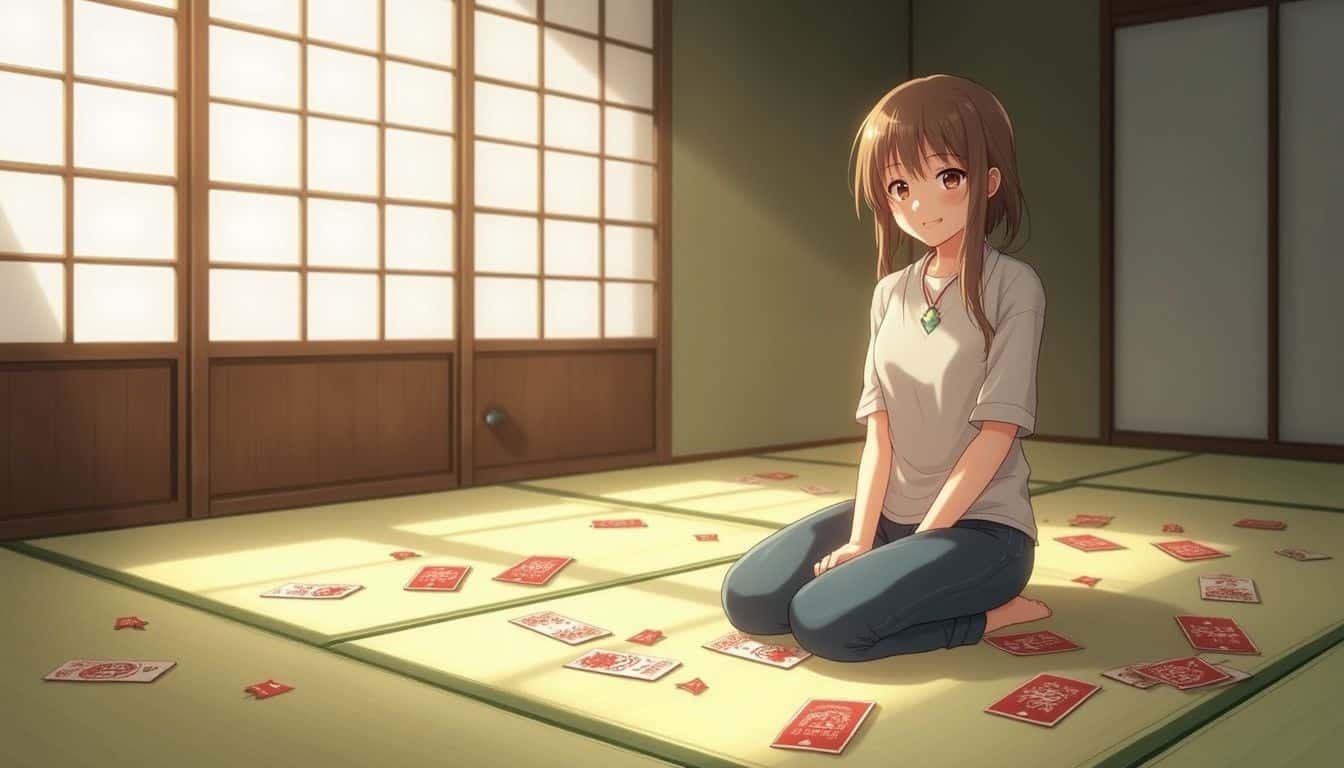
Baseball in Cross Game shows how sports can shape people’s feelings, and Chihayafuru connects karuta to romance in a similar way. Chihayafuru came out on October 5, 2011, from studio Madhouse and creator Yuki Suetsugu.
It follows the story of Chihaya Ayase as she aims for glory in competitive karuta—a fast-paced Japanese card game that demands sharp memory and quick reflexes. As I watched the series, it became clear how this unique sport sets the stage for deep emotional ties between characters.
Chihaya is caught up between her love of karuta and complicated feelings toward her two childhood friends Arata Wataya and Taichi Mashima. Through its 74 episodes, the anime uses tense matches to highlight friendships, rivalries, heartaches, and hidden crushes.
The matches push relationships forward; each game reveals new sides of players’ hearts as their skills grow stronger. Karuta isn’t just a backdrop but acts as an active force shaping complex emotions like jealousy or affection through every well-aimed swipe at cards on tatami mats.
Why is Sports and Romance a Great Combination?
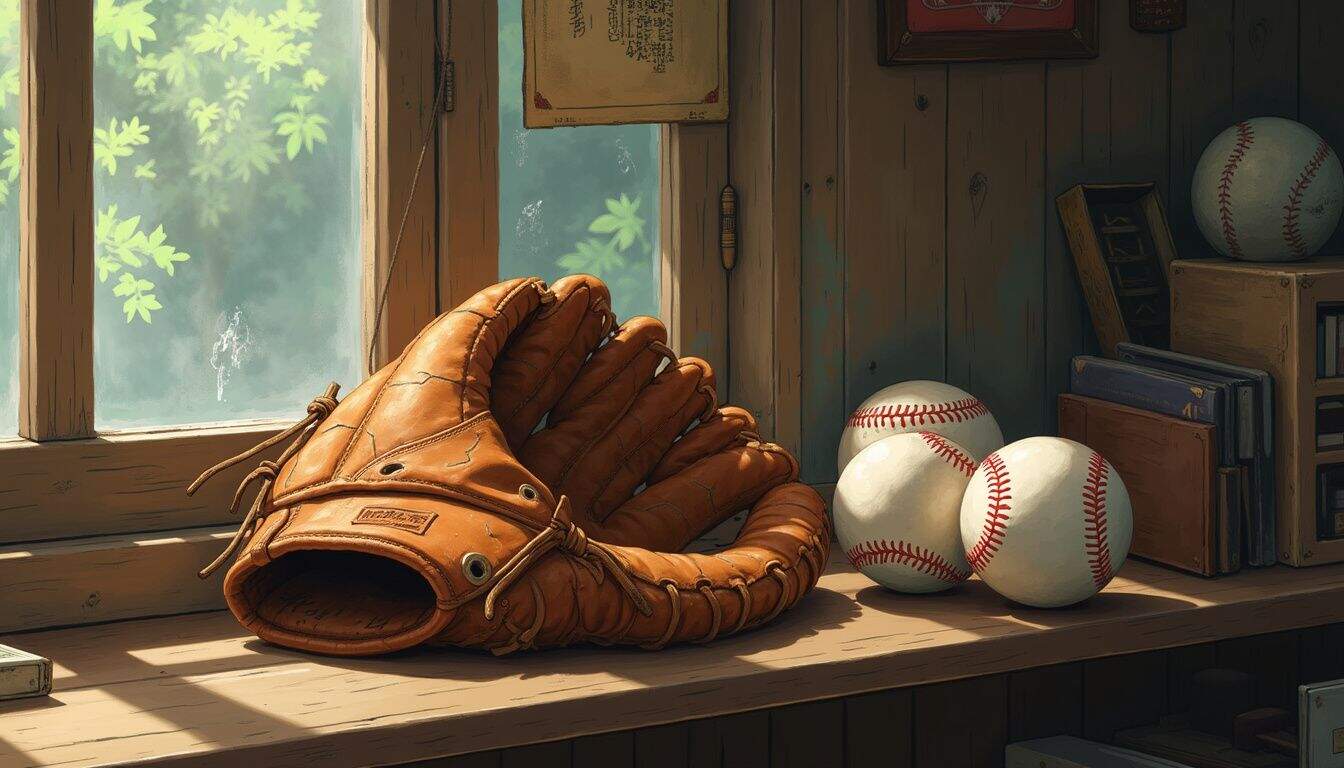
Sports anime and romance pair up well because both revolve around deep emotional journeys. Sports themes such as teamwork, perseverance, and personal growth naturally mix well with love stories.
Characters face tough challenges in sports that mirror struggles they have in their relationships. Take the anime “Yuri on Ice” as an example; Yuri doesn’t just skate for victory but also to win his coach Viktor’s heart.
The thrill of the rink adds passion to their bond.
The intense highs and lows of competition raise the stakes in romantic plots too. For instance, characters who learn trust through team play become more open off-field about their feelings.
In shows like “Cross Game,” baseball practice helps Ko Kitamura deal with grief while growing closer to Aoba Tsukishima over time through shared goals and loss. These rich experiences keep viewers rooting hard for success in both arenas—sports fields or love lives—which leads us nicely into exploring how you can pick an anime suited best for your taste next!
How Can You Choose the Right Anime for Your Taste?
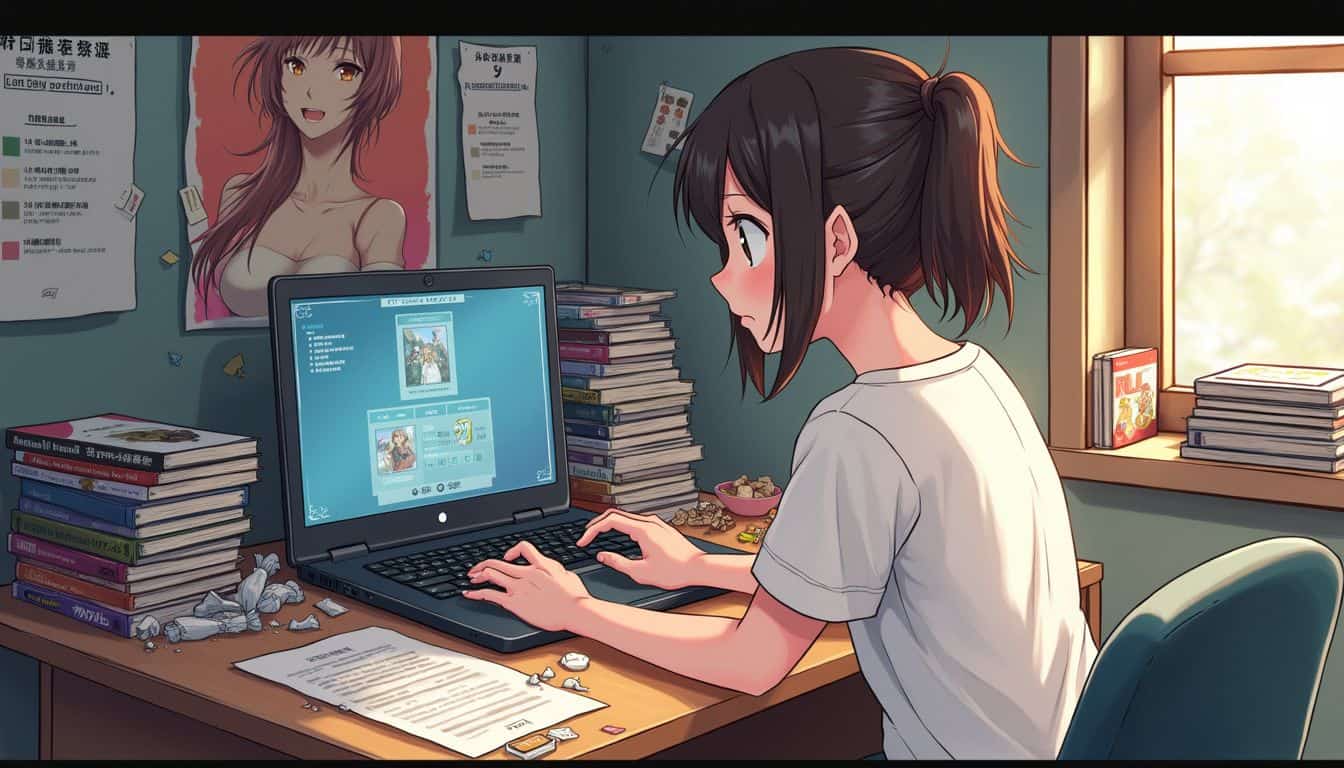
To find your perfect anime, try MyAnimeList ratings for the best sports romance shows. Use Crunchyroll tags to filter by sport type or romantic themes that excite you.
What should you consider about the sports element?
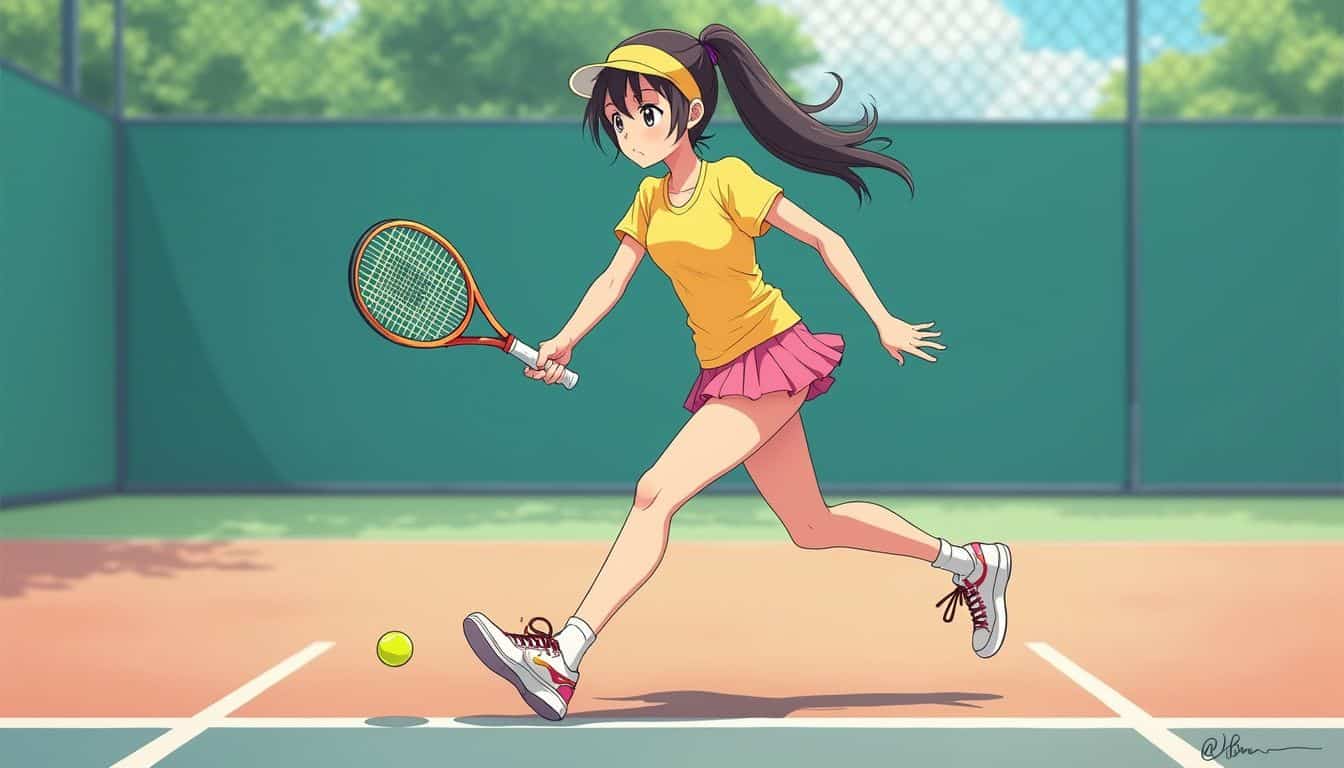
The sports element in anime must feel real and exciting. Anime series like “Baby Steps,” which centers on tennis, carefully show training strategies and precise footwork; the matches look and feel convincing through detailed animation sequences.
Good sports anime also highlight teamwork skills along with personal growth, as seen clearly in “Cross Game” where baseball forms a backdrop for emotional maturity.
If you are into niche or uncommon sports like karuta (competitive Japanese poetry card games) featured in “Chihayafuru,” pay attention to how well rules and playing styles come across.
Shows that focus strongly on accurate portrayal of sport dynamics often pull viewers deeper into their plots, making connections between action scenes, character relationships, and key aspects such as diverse LGBTQ+ themes displayed beautifully in figure skating within “Yuri on Ice.”.
How do you explore different romantic dynamics?
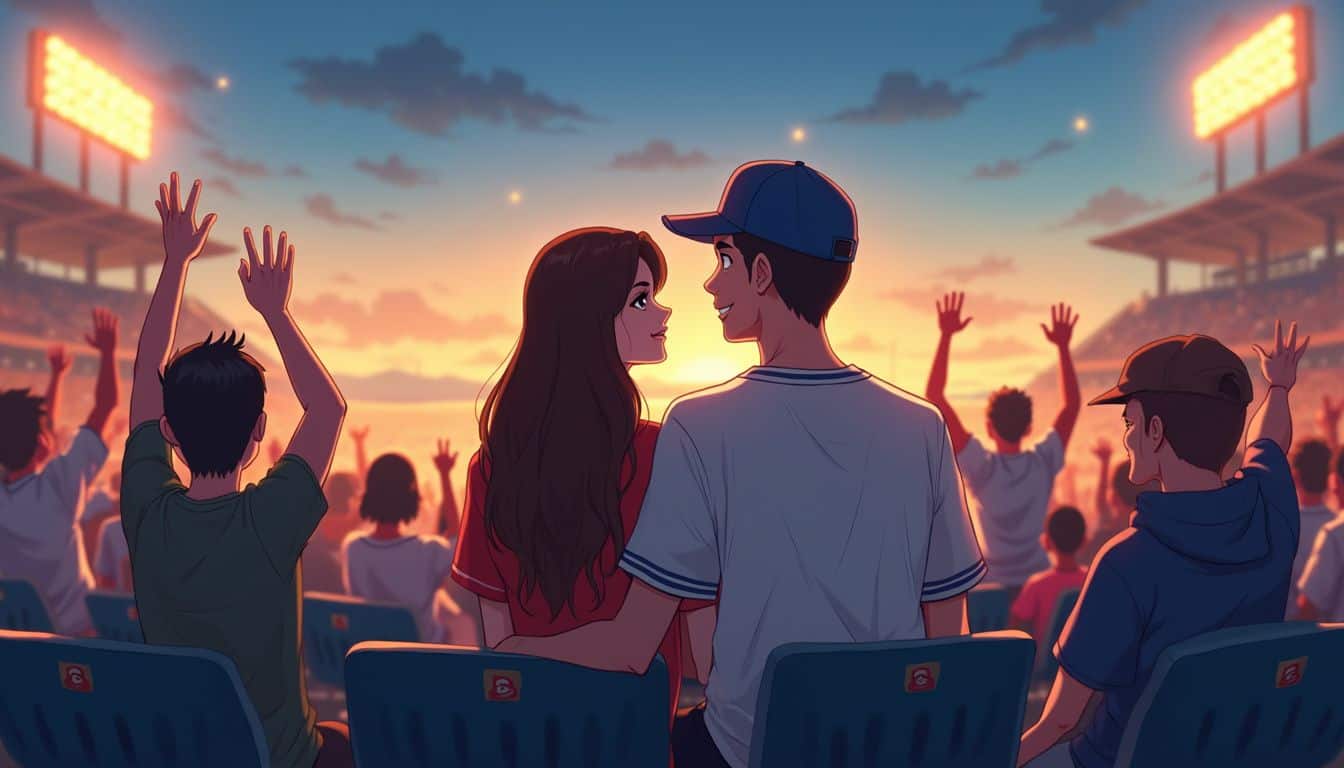
Anime sports romance often offers many styles of romantic dynamics. You might watch “Yuri on Ice” if you’re interested in a queer love story, where Yuri and Victor’s mutual support helps them grow stronger together.
A series like “Touch” uses a love triangle between twin brothers who play baseball and their childhood friend Minami; this adds drama to the sporting contest. In contrast, shows such as “Cross Game” emphasize how friendship slowly develops into deeper feelings over time through shared baseball challenges.
Series such as “Suzuka” follow different stages of dating, going beyond first attractions to include relationship-building moments and struggles. Checking out these anime lets you see unique sides of romance woven with competition, teamwork, emotional growth, and clear character development paths within sports themes like tennis (“Baby Steps”), judo (“Yawara!”), or even karuta matches (“Chihayafuru”).
Where can you find unique anime storylines?
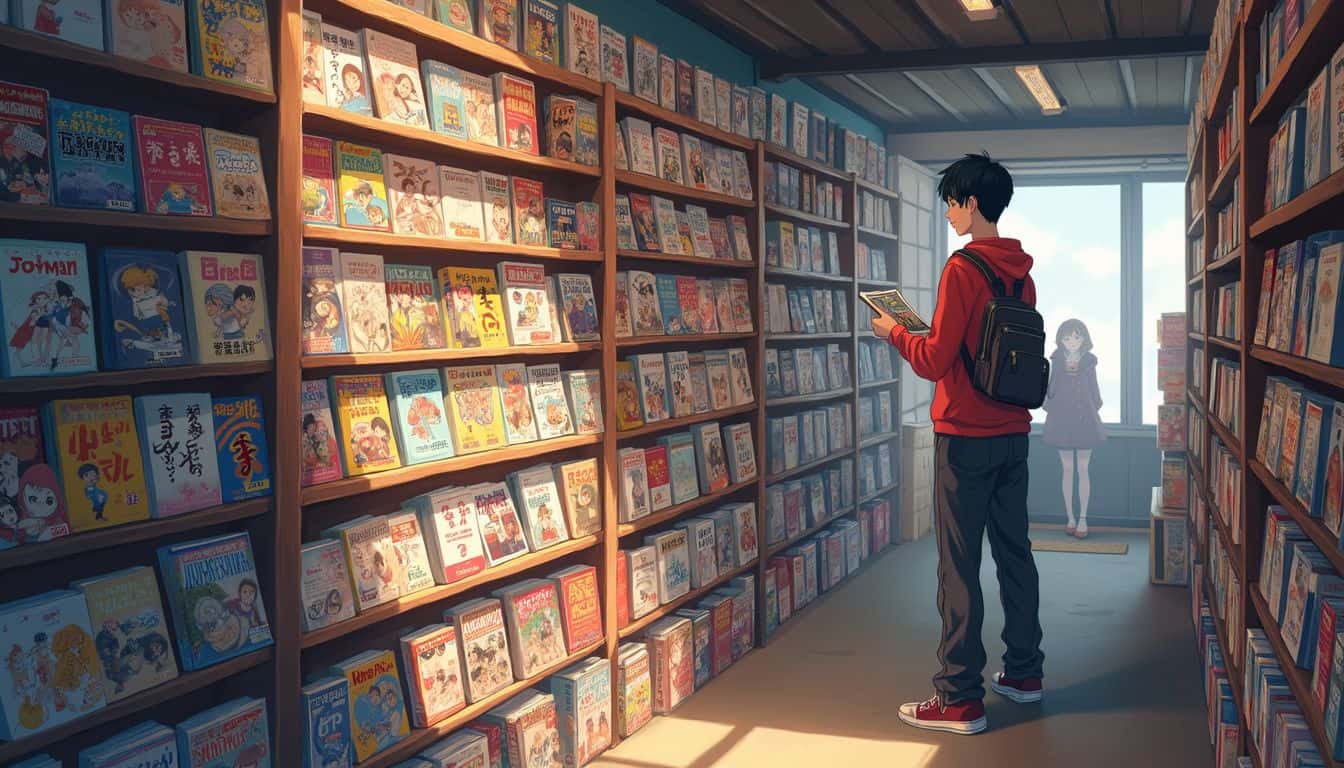
Exploring romantic dynamics in sports anime often leads geeks into surprising places. Platforms like Crunchyroll, Funimation, and Netflix feature unique anime stories that step away from common tropes.
Ginban Kaleidoscope centers on an ice skater who falls for a ghost; Air Gear mixes roller skating rivalries with teen romance; and Yawara! shows a young judoka choosing love over judo competitions.
Titles such as Yuri On Ice highlight LGBTQ+ relationships through figure skating passion, while Cross Game blends emotional baseball drama and touching themes of loss and growth to attract diverse audiences.
Watching these rare gems is exciting and refreshing for viewers seeking fresh ideas in anime sports romance.
How Will Anime Sports Romance Evolve in 2025?
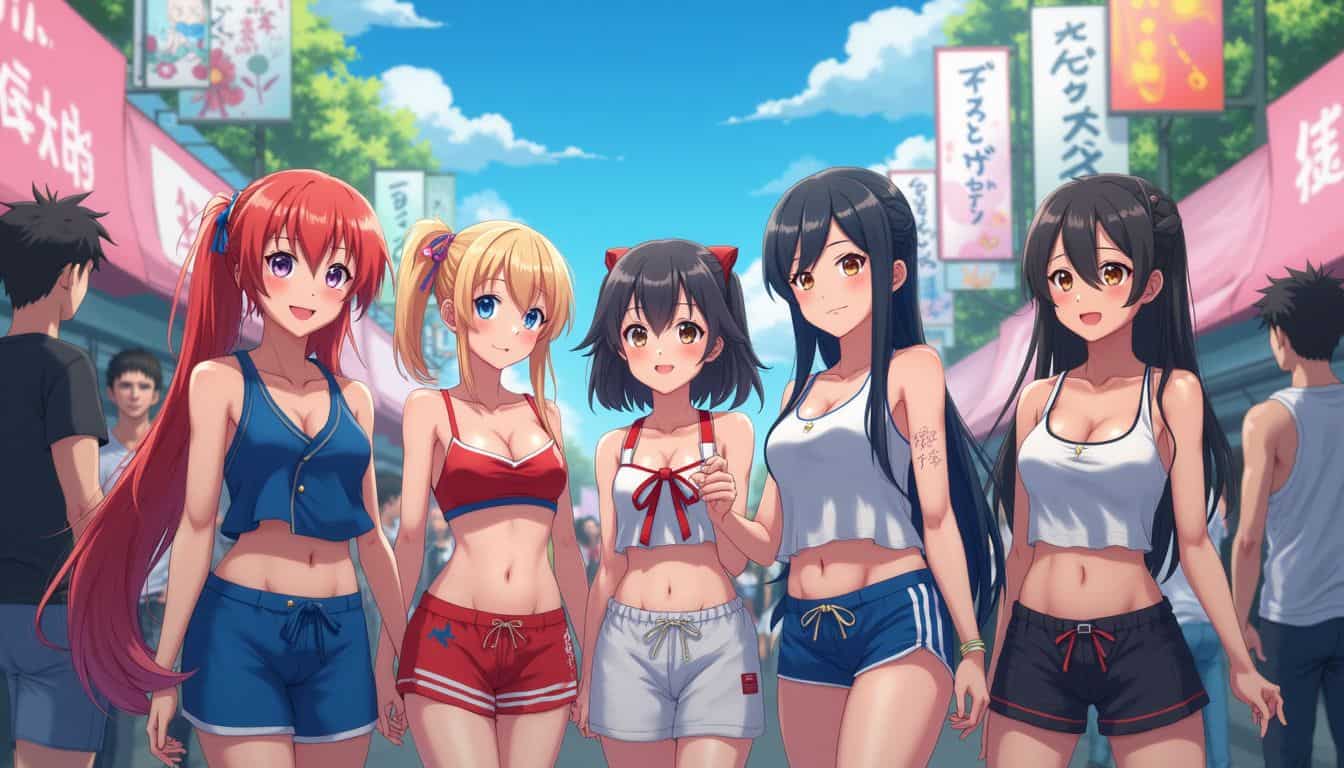
Anime sports romance is set to grow with fresh and diverse stories in 2025. Fans are eager for series that blend thrilling sports action with sweet romances. Studios like MAPPA and Production I.G have led this trend by bringing inclusive plots to mainstream audiences, as shown by Yuri on Ice’s queer love themes.
Streaming platforms such as Crunchyroll will release more titles in response to fan demand. My recent experience watching Blue Box showed how much viewers value characters who balance emotional growth and their athletic dreams; expect future anime shows to reflect these deeper, richer storylines through meaningful relationships at the center of intense competitions.
People Also Ask
What makes anime sports romance shows so popular with viewers?
Anime sports romance blends exciting athletic action with heartfelt love stories, making them engaging and relatable. Fans enjoy watching characters grow through teamwork, competition, and personal relationships.
Can you suggest some awesome anime series that combine sports and romance themes?
Sure! Popular picks include “Cross Game,” “Blue Spring Ride,” “Suzuka,” “Baby Steps,” and “Yuri on Ice.” These shows offer a perfect mix of thrilling matches, emotional drama, and sweet romantic moments.
Do these anime series focus more on the sport or the romantic storyline?
It depends on the show; some lean heavily toward intense sporting events while others highlight romantic connections between characters. Most strike a balance to keep both elements interesting for fans.
Are anime sports romances suitable for younger audiences too?
Generally yes, many are family-friendly with positive messages about friendship, determination, teamwork, and first love experiences. However certain titles may explore mature topics at times; always check ratings before viewing together as a family.
References
https://en.wikipedia.org/wiki/Suzuka_(manga)
https://gamerant.com/best-sports-romance-anime/
https://www.imdb.com/title/tt3342720/
https://www.cbr.com/blue-box-slice-of-life-romance-sports-anime-hidden-gem/
https://www.msn.com/en-us/news/technology/best-sports-romance-anime/ar-AA1pBBeN?ocid=BingNewsVerp
https://digitalcommons.tamuc.edu/cgi/viewcontent.cgi?article=1226&context=honorstheses
https://www.cbc.ca/arts/emerging-queer-voices-yuri-on-ice-1.7565688 (2025-06-19)
https://www.cbr.com/best-sports-anime/ (2024-02-13)
https://underthepinetree.substack.com/p/chihayafuru-is-a-love-story-part
https://lzerbnaiva.wordpress.com/tag/sports/
https://kiddtic.wordpress.com/2011/10/29/romance-and-how-it-is-portrayed-in-anime/ (2011-10-29)
https://gamerant.com/best-sports-anime-to-watch/ (2025-06-19)
